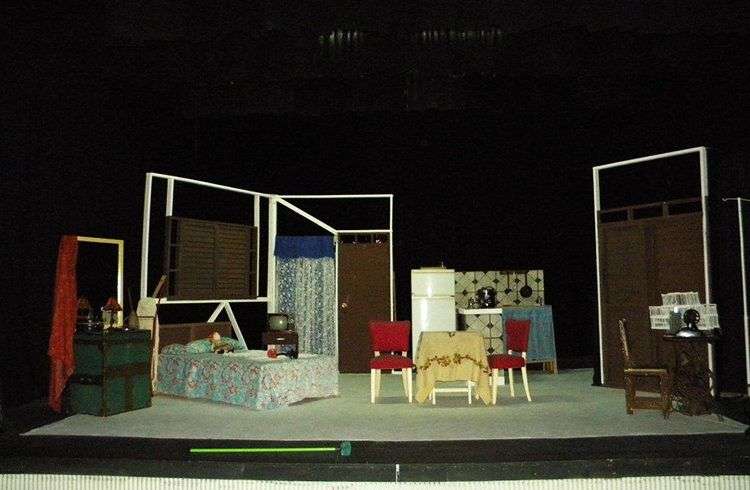The anthological piece Sabado Corto by Hector Quintero, is celebrating its 30th anniversary with its premiere by Teatro D’Dos last weekend at the Raquel Revuelta Cultural Complex.
Sábado corto is like any other Saturday between seven and nine in the evening. It includes a number of characters that end up in a necessary meeting and the possible spiritual achievement. The main character is a woman whose dreams are filled with ingenuity and transparency. These are the characters designed by the author, they are transparent and from their natural manners they intend to give a different color to daily life.
The piece will be on stage for a considerable part of the summer and will have another season in forthcoming months. OnCuba met with the director of Teatro D’Dos, actor Julio César Ramírez, to learn more about this proposal:
“When we stage Contigo pan y cebolla, last January, we couldn’t imagine the return of this playwright would be so fast. We did have the feeling that a strange taste, close to rejoicing, would take over the cast. Those characters represent a close relative and every dramatic situation is translated into permanent references; the fact is that moving away from a healthy exercise is really hard. We have come back and this time it is not Lala Fundora who seduces us with her many shades, it is Esperanza Mayor, as older in our Cuban theater manifestation as the many women’s names it embraces”, stated the director, who also plays the part of one of the characters in the piece.
Your company had previously dedicated a trilogy to Abelardo Estorino, why did you decide to do the same with Hector Quintero?
Since ancient times there have been trilogies. For our company it is a way of producing theater shows from different angles, subjects, and characters by the same author. Dealing with a playwright in a trilogy is really interesting because you get to research the trends and formulas he had worked with. In the case of Quintero, we started with Contigo pan y cebolla, from the 60’s, and soon we will premiere Te sigo esperando, from the 90’s.
Teatro D´Dos is betting on the pleasure of enjoying a piece by Quintero, a comedy with all the ingredients of this genre. We want to reflect on our people today and on daily life, we want to spend some time making theater and enjoy it while we do it.
How much significant is Quintero’s work in the history of Cuban theater?
Quintero got us used to watching his proposals as director. Not being around in one of his pieces. We rarely saw one of his pieces being directed by someone else. We already know what to do to represent his playwrights. He is actually an essential figure in the Cuban theater and one of the most relevant exponents of comedy. He is thegreat Cuban playwright of the Cuban family. In the 19th century we had Joaquín Lorenzo Luaces, but the 20th century has got him.
His work is really solid, not just popularly, but also conceptually. He radiographed the behavior of Cubans from a critical perspective with a particular humor. He achieved excellent dialogues, almost perfect. He described as no one else the behavior of popular characters. Now I am studying because I play one of the characters of this piece. As we study the piece we realize it was masterly written. Quintero established that perfect conjunction between popular and literary.
What are the main differences between this stage and the one directed by Quintero 30 years ago?
He talked about the 80’s, about the issues and jokes of that time. Obviously he is a universal author and in view of this it is possible to leave aside local elements and keep the global axis. I have removed local topics from the piece but I have kept its essence, the basics. I think that’s the difference. I cannot say this is a different version; we have made adjustments with updated terminology, always respecting important details in the original text.
In your opinion, is the piece still valid nowadays?
This piece deals with loneliness and the search for love, these subjects don’t demand a specific time frame. When I saw it back in the 80’s I was still a student, I thought the piece would stay in that historical moment nationally. However, it is still valid for future generations. I would like to recommend this piece to everyone. It is a comedy in full, which will not only make the audience laugh but also reflect on, and identify with the characters.










